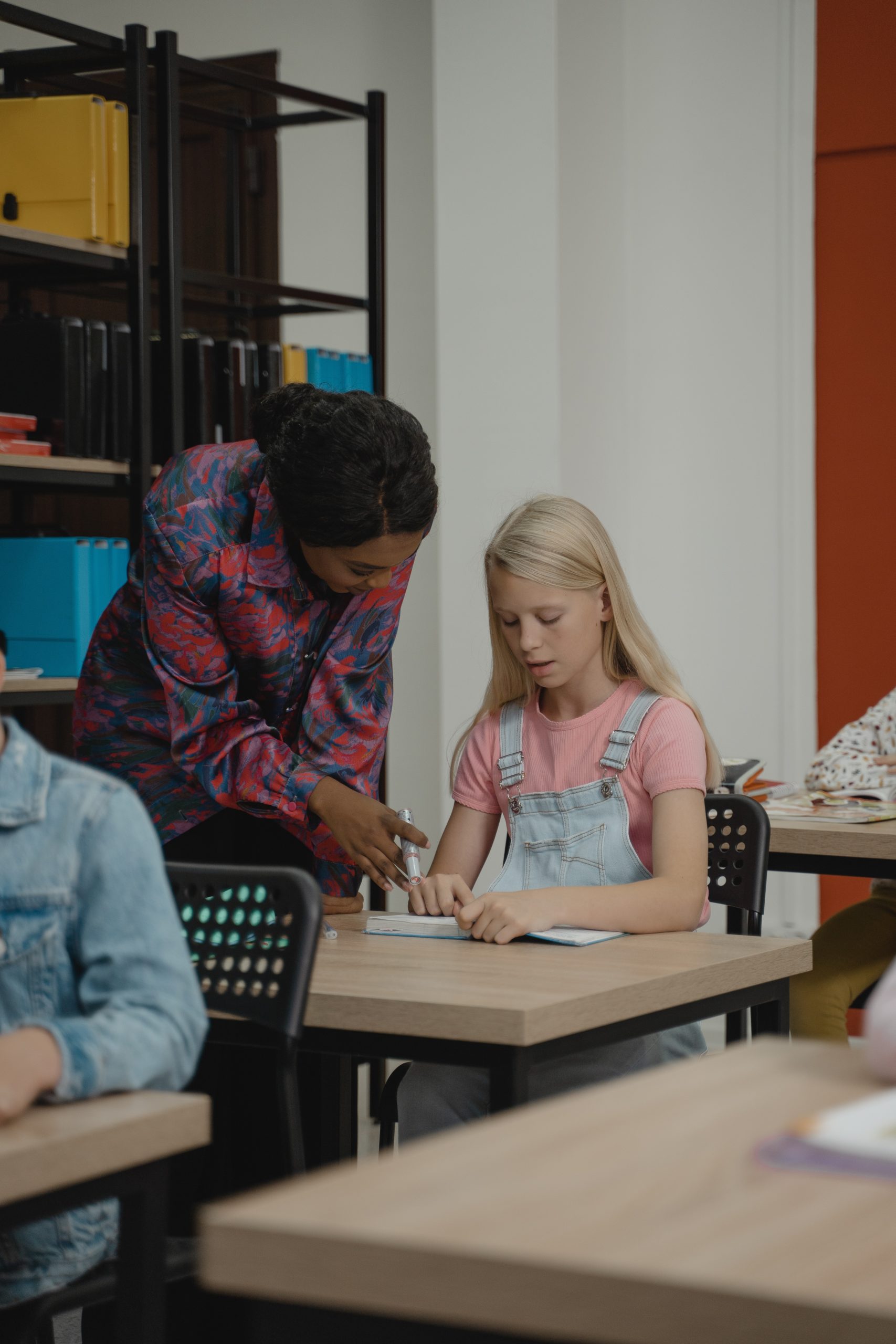Early Learning and Childcare: Nurturing Bright Futures
Introduction: Early Learning and Childcare play a pivotal role in shaping a child’s growth and development. During the early years, children’s minds are like sponges, absorbing knowledge and experiences that lay the foundation for their future. This comprehensive guide explores the significance of early learning and quality childcare services in fostering holistic development and nurturing bright futures.
The Benefits of Early Learning
Cognitive Development: Early learning experiences engage young minds, promoting cognitive development. Through age-appropriate activities, children build problem-solving skills, critical thinking, and logical reasoning.
Social and Emotional Growth: Interacting with peers and caregivers in early learning settings helps children develop social skills and emotional intelligence. They learn to communicate, cooperate, and manage emotions effectively.
Language and Communication Skills: Early exposure to language-rich environments in childcare centers accelerates language acquisition and strengthens communication skills, which are essential for effective expression.
Motor Skills Development: Play-based learning and physical activities in early learning programs enhance fine and gross motor skills, boosting children’s physical coordination and dexterity.


Types of Early Learning Programs
Preschool Education: Preschools provide structured learning experiences that prepare children for formal schooling. They focus on early literacy, numeracy, and socialization skills in a nurturing environment.
Montessori Method: The Montessori approach emphasizes hands-on learning and individualized education. It encourages self-directed exploration and fosters independence and self-confidence.
Reggio Emilia Approach: Reggio Emilia programs prioritize creativity and self-expression, encouraging children to explore their interests through various art forms and collaborative projects.
Play-Based Learning: Play-based learning centers promote learning through play, allowing children to explore, imagine, and experiment, which fosters creativity and a love for learning.
Choosing the Right Childcare Services
Factors to Consider: When selecting childcare services, factors like location, safety, curriculum, staff-to-child ratio, and facilities should be carefully evaluated to ensure a nurturing and supportive environment.
Types of Childcare Centers: Parents can choose from various childcare options, such as daycare centers, nursery schools, and family child care homes. Each type offers different benefits and considerations.
In-Home Childcare vs. Daycare Centers: Parents may decide between in-home childcare provided by a caregiver in their home and daycare centers that offer group care. Both options have distinct advantages based on individual family needs.
Creating a Stimulating Early Learning Environment
Setting up a Safe and Nurturing Space: Early learning environments should be safe, organized, and stimulating. Child-proofing, age-appropriate toys, and learning materials create a conducive setting for exploration.
Incorporating Educational Toys and Tools: Offering a variety of educational toys, books, and learning tools sparks children’s curiosity and supports their early learning journey.
Importance of Play in Learning: Play is a vital aspect of early learning. It fosters creativity, problem-solving, and social skills as children engage in imaginative and cooperative play.
Early Learning Curriculum and Activities
Age-Appropriate Learning Activities: Tailoring activities to suit the developmental stage of children ensures meaningful learning experiences that cater to their individual needs and interests.
Developing a Balanced Curriculum: An effective early learning curriculum encompasses a broad range of subjects, including language, math, science, arts, and physical activities, promoting well-rounded development.
Engaging Children in Interactive Learning: Interactive learning activities, such as group discussions, hands-on experiments, and field trips, keep children engaged and eager to explore new concepts
Supporting Early Literacy in Childcare
Storytelling and Reading Sessions: Storytelling and reading sessions expose children to a world of imagination, language, and storytelling, fostering a love for books and reading.
Building a Love for Books: Cultivating a love for books early on lays the foundation for lifelong learning and a thirst for knowledge.
Language Enrichment Strategies: Engaging children in conversation, introducing new vocabulary, and encouraging active participation support language enrichment and communication skills.
Fostering Social and Emotional Development
Encouraging Peer Interaction: Peer interactions in childcare settings promote social skills, empathy, and cooperation, helping children build meaningful relationships.
Teaching Empathy and Emotional Intelligence: Caregivers play a vital role in teaching children to recognize and manage their emotions and empathize with others.
Handling Separation Anxiety: Providing a supportive transition and a comforting environment helps children cope with separation anxiety during their early learning journey.
Parental Involvement in Early Learning
Importance of Parent-Child Bonding: Strong parent-child bonds create a secure and trusting environment that enhances a child’s learning and emotional development.
Communication with Childcare Providers: Regular communication with childcare providers fosters a collaborative approach to a child’s early learning and ensures parents are actively involved.
Extending Learning at Home: Engaging in learning activities at home and reinforcing concepts from childcare settings strengthens the learning experience.
Early Learning and Childcare Trends
Technological Integration in Education: Incorporating technology in early learning programs enhances interactive learning experiences and prepares children for the digital age.
Inclusive Education and Special Needs Support: Inclusive childcare settings provide tailored support for children with diverse needs, promoting a sense of belonging and equal opportunities.
Sustainability and Nature-Based Learning: Nature-based learning initiatives encourage environmental awareness and an appreciation for the natural world.
Conclusion Early Learning and Childcare are transformative experiences that shape the trajectory of a child’s life. By providing quality education, nurturing environments, and meaningful relationships, we lay the groundwork for confident, curious, and well-rounded individuals who will embrace the future with boundless potential.
FAQ’s
What is Early Learning?
Early learning refers to the educational experiences and activities designed to support the development of young children, typically from birth to age five. It includes activities that promote cognitive, social, emotional, and physical growth during a child’s crucial early years.
Why is Early Learning Important?
Early learning is essential because it lays the foundation for a child’s future academic and social success. It helps children build critical skills, curiosity, and a love for learning, which sets them on a path towards lifelong learning and achievement.
What are the Benefits of Quality Childcare Services?
Quality childcare services provide a safe, nurturing, and stimulating environment for children. They offer numerous benefits, such as fostering socialization, encouraging cognitive development, supporting emotional growth, and enabling working parents to pursue their careers with peace of mind.
What Are the Different Types of Early Learning Programs?
Early learning programs vary in their approaches and philosophies. Some common types include preschools, Montessori schools, Reggio Emilia programs, play-based learning centers, and daycare facilities.
How Can I Choose the Right Childcare Service for My Child?
Choosing the right childcare service involves considering factors like the location, curriculum, caregiver-to-child ratio, safety measures, and the overall environment. It’s essential to visit the facility, talk to caregivers, and observe how they interact with the children.
What Can Parents Do to Support Early Learning at Home?
Parents can actively support early learning by reading to their children, engaging in play-based activities, fostering a love for books, and providing a language-rich environment. Simple activities like counting, storytelling, and exploring nature can enhance a child’s learning experiences.
How Can Early Learning Programs Promote Social and Emotional Development?
Early learning programs promote social and emotional development through opportunities for peer interaction, emotional expression, and building positive relationships with caregivers. Activities like sharing, taking turns, and problem-solving contribute to emotional intelligence.
What Are Some Trends in Early Learning and Childcare?
Some current trends in early learning and childcare include incorporating technology in education, embracing inclusive practices to support children with diverse needs, and promoting nature-based learning to foster environmental awareness.
How Do Early Learning Programs Prepare Children for Formal Schooling?
Early learning programs prepare children for formal schooling by introducing basic concepts, promoting independence, and developing essential skills like listening, following instructions, and cooperating with others.
Is Early Learning Only About Academic Readiness?
No, early learning is not solely about academic readiness. It also focuses on fostering social skills, emotional well-being, physical development, creativity, and problem-solving abilities, which are equally crucial for a child’s overall growth.
